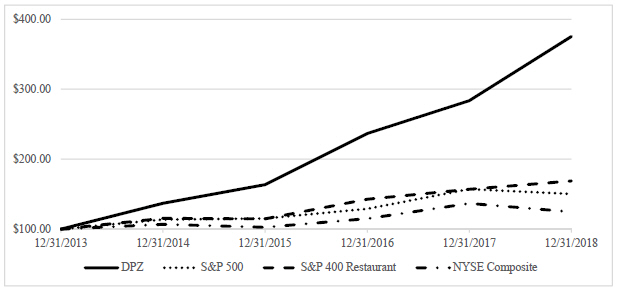We may also pursue strategic acquisitions as part of our business. If we are able to identify acquisition candidates, such acquisitions may be financed, to the extent permitted under our debt agreements, with substantial debt or with potentially dilutive issuances of equity securities.
The food service market is affected by consumer preferences and perceptions. Changes in these preferences and perceptions may reduce the demand for our products, which would reduce sales and harm our business.
Food service businesses are affected by changes in consumer tastes, international, national, regional and local economic conditions, and demographic trends. For instance, if prevailing health or dietary preferences cause consumers to avoid pizza and other products we offer in favor of foods that are perceived as healthier, our business and operating results would be harmed. Moreover, because we are primarily dependent on a single product, if consumer demand for pizza should decrease, our business would suffer more than if we had a more diversified menu, as many other food service businesses do. The preferences of customers also may change as a result of advances in technology or alternative delivery methods or channels. If we are not able to respond to these changes, or our competitors respond to these changes more effectively, our business and operating results could be adversely affected.
Our inability or failure to recognize, respond to and effectively manage the accelerated impact of social media could adversely impact our business.
In recent years, there has been a marked increase in the use of social media platforms, including blogs, chat platforms, social media websites, and other forms of internet-based communications that allow individuals access to a broad audience of consumers and other persons. The rising popularity of social media and other consumer-oriented technologies has increased the speed and accessibility of information dissemination. The dissemination of information via social media could harm our business, brand, reputation, marketing partners, financial condition, and results of operations, regardless of the information’s accuracy. This could include negative publicity related to our food products or stores or negative publicity related to actions by our executives, team members or franchisees.
In addition, we frequently use social media to communicate with consumers and the public in general. Failure to use social media effectively could lead to a decline in brand value and revenue. Other risks associated with the use of social media include improper disclosure of proprietary information, negative comments about our brand, exposure of personally identifiable information, fraud, hoaxes or malicious dissemination of false information.
Reports of food-borne illness or food tampering could reduce sales and harm our business.
Reports, whether true or not, of food-borne illnesses (such as E. coli, avian flu, bovine spongiform encephalopathy, hepatitis A, trichinosis or salmonella) and injuries caused by food tampering have in the past severely injured the reputations of participants in the QSR sector and could in the future as well. The potential for acts of terrorism affecting our global food supply also exists and, if such an event occurs, it could have a negative impact on us and could severely hurt sales and profits. In addition, our reputation is an important asset; as a result, anything that damages our reputation could immediately and severely affect our sales and profits. Media reports of illnesses and injuries, whether accurate or not, could force some stores to close or otherwise reduce sales at such stores. Moreover, as described above, social media has dramatically increased the rate at which negative publicity, including as it relates to food-borne illness, can be disseminated before there is any meaningful opportunity to respond to or address an issue. Even reports of food-borne illnesses or food tampering occurring solely at the restaurants of competitors could, by resulting in negative publicity about the restaurant industry, adversely affect us on a local, regional, national or international basis.
We do not have long-term contracts with certain of our suppliers, and as a result they could seek to significantly increase prices or fail to deliver.
We do not have long-term contracts or arrangements with certain of our suppliers. Although in the past we have not experienced significant problems with our suppliers, our suppliers may implement significant price increases or may not meet our requirements in a timely fashion, or at all. The occurrence of any of the foregoing could have a material adverse effect on our results of operations.
Shortages or interruptions in the supply or delivery of fresh food products could adversely affect our operating results.
We and our franchisees are dependent on frequent deliveries of food products that meet our specifications. In addition, we have single suppliers or a limited number of suppliers for certain of our ingredients, including pizza cheese and meat toppings. While we believe there are adequate reserve quantities and potential alternative suppliers, shortages or interruptions in the supply of food products caused by increased demand, capacity constraints, problems in production or distribution, financial or other difficulties of suppliers, inclement weather or other conditions could adversely affect the availability, quality and cost of ingredients, could adversely affect our operating results.
12
